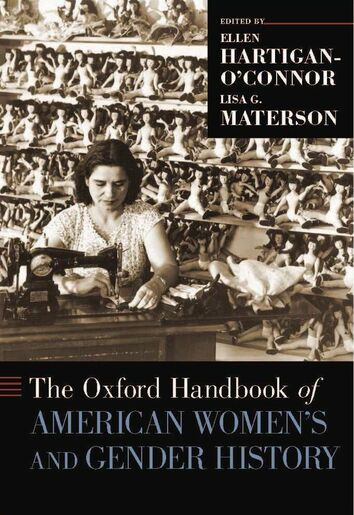
The Oxford Handbook of American Women’s and Gender History boldly interprets the history of diverse women and how ideas about gender shaped their access to political and cultural power in North America over six centuries.
In 29 chapters, the Handbook showcases women’s and gender history as an integrated field with its own interpretation of the past, focused on how gender influenced people’s lives as they participated in migration, colonialism, trade, warfare, artistic production, and community-building. Theoretically cutting edge, each chapter bursts with fascinating historical characters, from young Chicanas transforming urban culture, to free women of color forging abolitionist doctrines, to Asian migrant women defending the legitimacy of their marriages, to working-class activists mobilizing international movements, to transwomen fleeing incarceration. Together, their lives constitute the history of a continent.
Leading scholars from multiple generations demonstrate the power of innovative research to excavate a history hidden in plain sight. Scrutinizing silences in the historical record, from the inattention to enslaved women’s opinions to the suppression of Indian women’s involvement in border diplomacy, the authors challenge the nature of historical evidence and remap what counts in our interpretation of the past. They set an intellectual agenda informed by intersectionality and transnationalism, and new understandings of sexuality.
Together and separately, these essays offer readers a deep understanding of the variety and centrality of women’s lives to all dimensions of the American past, even as they show that the boundaries of “women,” “American,” and “history” have shifted across the centuries
In 29 chapters, the Handbook showcases women’s and gender history as an integrated field with its own interpretation of the past, focused on how gender influenced people’s lives as they participated in migration, colonialism, trade, warfare, artistic production, and community-building. Theoretically cutting edge, each chapter bursts with fascinating historical characters, from young Chicanas transforming urban culture, to free women of color forging abolitionist doctrines, to Asian migrant women defending the legitimacy of their marriages, to working-class activists mobilizing international movements, to transwomen fleeing incarceration. Together, their lives constitute the history of a continent.
Leading scholars from multiple generations demonstrate the power of innovative research to excavate a history hidden in plain sight. Scrutinizing silences in the historical record, from the inattention to enslaved women’s opinions to the suppression of Indian women’s involvement in border diplomacy, the authors challenge the nature of historical evidence and remap what counts in our interpretation of the past. They set an intellectual agenda informed by intersectionality and transnationalism, and new understandings of sexuality.
Together and separately, these essays offer readers a deep understanding of the variety and centrality of women’s lives to all dimensions of the American past, even as they show that the boundaries of “women,” “American,” and “history” have shifted across the centuries